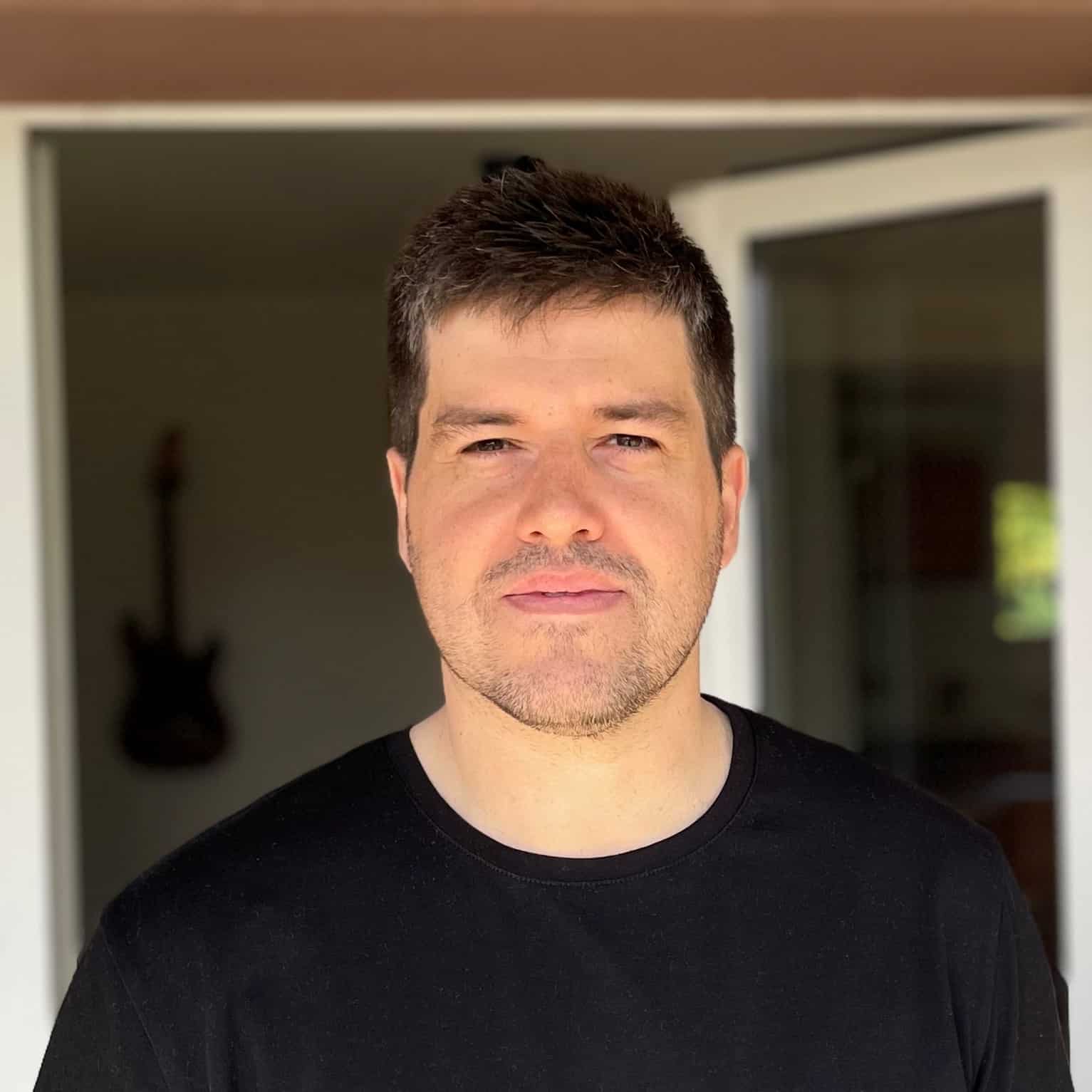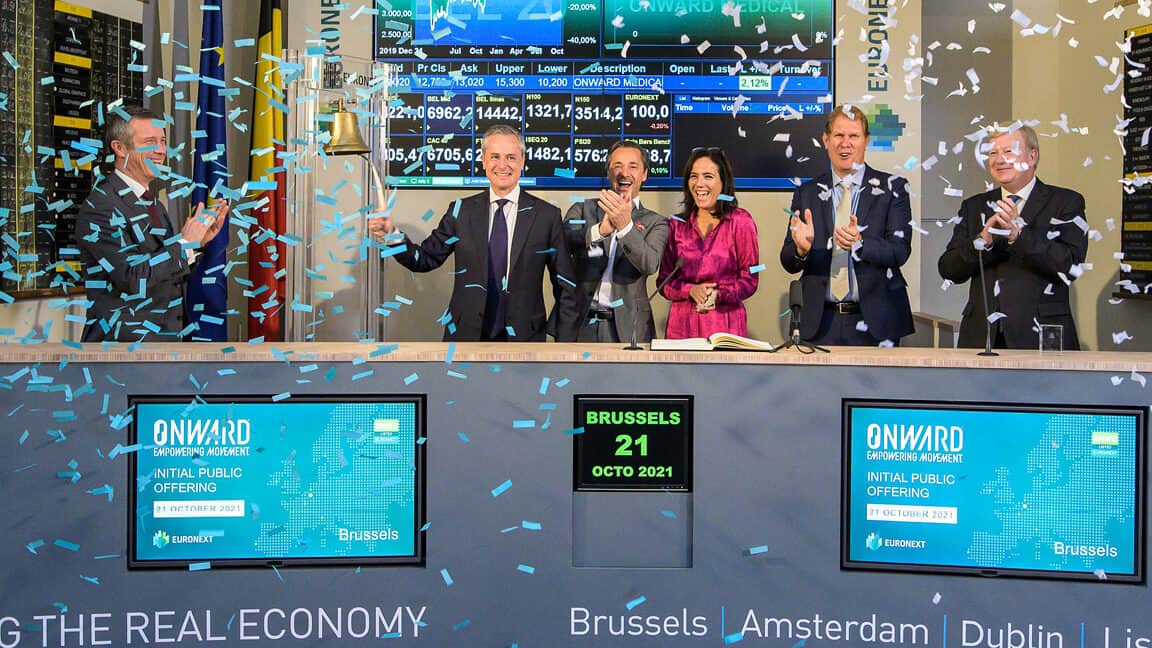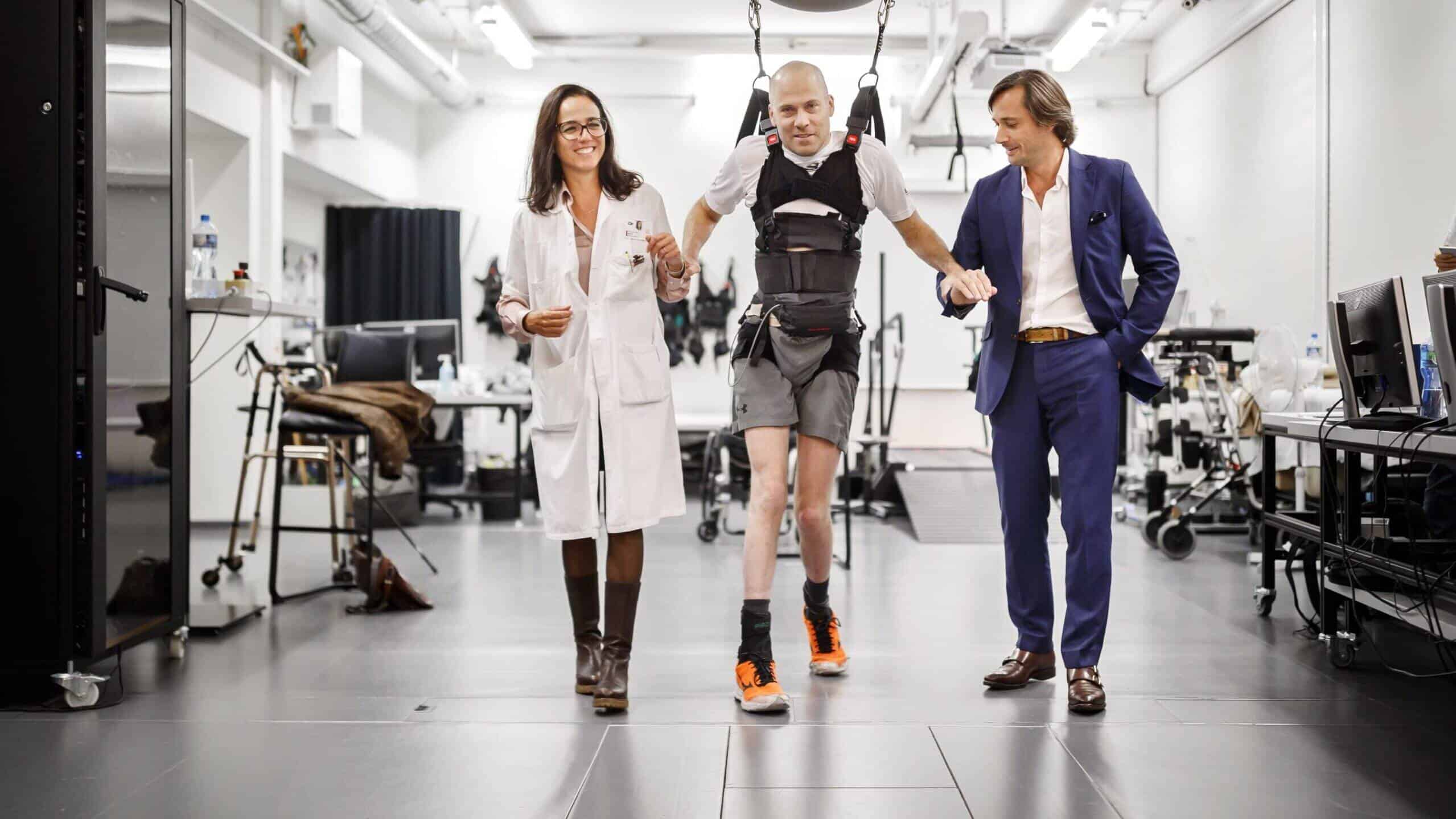EPFL spin-off Comphya is about to start pilot clinical trials for its neurostimulator as a treatment for erectile dysfunction. In our interview, founder Rodrigo Fraga-Silva explains who would benefit from it, why the current methods are medieval, and why world-leading scientists have joined the startup’s advisory board.

Founder, Comphya
Rodrigo is a Ph.D. in Pharmacology with over 13 years of experience in the scientific space of vascular biology, sexual medicine, and male sexual function. He published over 60 scientific articles in prestigious international journals. The International Society of Sexual Medicine has recognized his scientific work on sexual medicine with the Jean-Francois Ginestié Prize in 2012. Rodrigo holds 8 inventions patented in the field of cardiovascular diseases, erectile dysfunction, and alopecia (hair loss). After inventing the core technology of CaverSTIM, Rodrigo co-founded Comphya together with Prof. Nikos Stergiopoulos and Mikael Sturny in 2017.
The EPFL spin-off Comphya is a medtech startup developing a treatment for erectile dysfunction, a widespread disorder that affects 66 million people in Europe and America alone. Around 30% of them do not respond to oral treatments such as the drug Viagra. These are typically patients with disrupted neural pathways because of spinal cord injury or prostatectomy (the surgical removal of the prostate to treat cancer, which affects the relevant nerves as well). To achieve an erection these millions of patients have to resort to painful and problematic methods such as penile injections or penile implants. Comphya is developing a painless and more comfortable alternative to these outdated methods. Its technology consists of an implanted neurostimulator and an electrode array placed in the pelvis that stimulates the nerves on demand, activated via a wireless remote control. Comphya is supported by key opinion leaders in prostatectomy, urology, sexual medicine and spinal cord injury. The startup raised a USD 3m Seed round in 2019 led by Verve Ventures.
Where does the idea for the startup Comphya come from?
I was always in love with academic work, and I published quite a lot of scientific papers for a postdoc. But after a while, I started to feel tired from repeating the same publishing process over and over. When I came to EPFL, I got in contact with a lot of startups and founders, and this captured my imagination. My fascination with science came back stronger than ever, but under a new form; I wanted to find a way of bringing scientific excellence to the real world, to change and improve people’s lives. At the time, we were studying the impact of neuromodulation on blood vessels. Stimulating the nerves of rats resulted in them getting an erection. I became curious. Does this work with humans as well?
Does it?
As it turned out, Arthur Burnett [Professor of Urology at Johns Hopkins University School of Medicine in Baltimore who has joined Comphya as Chairman of the board] had the same idea earlier. A decade ago, he conducted a trial, but the response rate was only 50%. The problem was the difficulty to reach the right nerves with the slim electrode arrays they used. Patients differ from each other and the anatomy of the neural paths for an erection is complex. We developed a different, broader electrode array that looks like a paddle. It overcomes this difficulty and is much easier to place. We achieved a 100% response rate in the 20 cases we tried it.
The medical device Comphya is developing is aimed at patients with erectile dysfunction who do not respond to drugs such as Viagra. Some of them have suffered spinal cord injuries (SCI) due to accidents, they might be young and otherwise fit men who had a motorcycle accident, for example. Never having sex again is not an option for them, I guess?
It is correct that there is a big medical need and that SCI patients are looking for a pain-free solution. But it’s not only about them. We spoke to a man who wants to volunteer for the clinical trials who said: “I’m doing this for my wife.” Partnered people are in it together. If we can bring back this form of intimacy in their lives, it will be a major achievement. But it’s not just SCI patients. There are around 100’000 prostatectomies in the US every year. But even that is not the biggest group as evidenced by the sales of penile implants. There are many other reasons why people do not respond to oral drugs, and they include diabetes, hypertension and psychogenic factors. We’re talking about a market potential of 20 million patients.
You emphasized that Comphya’s approach is pain-free. I’m scared to ask, but what are the treatments available today?
We don’t have direct competition. The existing alternatives are injections and implants, and they are problematic, to say the least. Imagine having to clean your penis with an alcohol wipe and then poke a needle into it to inject medication, and then you need to compress the injection area for 5 minutes. This kills the spontaneity of sex. Furthermore, it causes pain and can have other side effects such as hematoma and fibrosis. It’s not surprising that 40-80% of those who try penile injections stop at one point in time. The other alternative, implanting an inflatable device, has other issues and there is no way back from it. On a more positive note, the fact that penile implants are reimbursed presents a very clear path to reimbursement for our product. However, there is still a lot of work to do.

Invest in Startups
As one of Europe’s most active venture capital investors, we grant qualified private investors access to top-tier European startups. With investments starting at EUR/CHF 10’000, you can build your own tailored portfolio over time and diversify across stages and sectors.
What are the next steps for Comphya?
We’re preparing to start the pilot clinical trials in Brazil, Australia and the United States, where our Clinical Advisory Board members are based and we’re raising a bridge financing round to secure enough runway until we have preliminary clinical data from these trials in 2023. Having the clinical proof of our device will allow us to raise a Series A financing round of around USD 20 million in 2023 to conduct a larger pivotal clinical trial, which eventually will allow us to file for regulatory approval of our device. We’re aiming for the US market first because it’s the biggest market and the most attractive reimbursement scheme.
Now is not an easy environment to be fundraising in general, even less so for an early-stage medtech startup in a niche market.
The market, as I explained earlier, is very large. We already have a list of venture capital firms that are very eager to get a look at the data we’ll gather from the pilot trial. Once we have the clinical proof, we’ll be in a very strong position. Our cash burn is minimal and our budget predictability is high, we’re a team of 5. The decision to outsource as much as possible, manufacturing, regulatory affairs and even accounting and to focus on research and development with a small team is clearly advantageous for us in such an environment. Our intellectual property portfolio is strong, we have 6 granted patents and are filing new ones. We have significant interest from the medical community because our technology can help penile rehabilitation after prostatectomy. Stimulating the nerves like we do speeds up their growing back together. We recently strengthened our advisory board with 3 new members, Dr. Francois Giuliano, Dr. Sidney Glina and Dr. Tony Costello. These are literally the most relevant key opinion leaders in their respective fields. They understand the medical need, our clinical proposition, and the value our treatment will provide for patients. The execution of the pilot studies will be a major value inflection point for Comphya, and we’re very confident to reach good results.
Does Comphya also have a clear exit strategy?
The most obvious exit route would be an acquisition by one of the main medtech companies active in the field of penile implants, neurology or neuromodulation or by a pharma company selling injections. Our technology isn’t just doing something a bit better, it is a breakthrough technology that has the potential to completely disrupt the business of these companies. What do you think patients will say when they can choose between our solution which gives them a pain-free erection in a matter of one minute, controlled by an app, or having to inject a fluid with a syringe into their penis? The two windows for an exit are after the completion of the pilot trial in 2023 and after the pivotal trials later in the future.
Verve Ventures’ team introduced Comphya to the Praxis Spinal Cord Institute, a non-profit organization based in Vancouver with the goal of speeding up innovation and improving treatments for people with spinal cord injury. Comphya was accepted into its accelerator program in 2022 together with only 3 other companies. How did you profit from the program?
Their expertise, global network and access to top clinicians and around 20’000 SCI patients make Praxis an invaluable partner. Thanks to them, we could interact with top clinics and many patients which helped us understand better what they need and what they’re looking for. We were able to optimize our clinical protocol and the data we gathered. We added fertility, for example, and if we find that our solution helps in this regard it will be a big plus. Another thing that we developed based on patients’ feedback is a subprogram that will provoke just a small erection. This helps them to place a catheter, which they need to do 6-8 times per day to urinate.
We also received a small cash grant from Praxis, and we’re happy to announce that they’re committed to invest as well. Personally, I found it most encouraging that the patients told us they are very eager for our product to hit the market as soon as possible. It was, like I said in the beginning, my motivation to start this company in the first place, to bring innovation to patients that will change their lives for the better.
Written by
WITH US, YOU CANCO-INVEST IN DEEP TECH STARTUPS

Verve's investor network
With annual investments of EUR 60-70 mio, we belong to the top 10% most active startup investors in Europe. We therefore get you into competitive financing rounds alongside other world-class venture capital funds.
We empower you to build your individual portfolio.
More News
02.12.2021
“ONWARD did the largest European medical device IPO this year”
EPFL spin-off ONWARD aims to improve the quality of live of people bound to a wheelchair by spinal cord injury. After the successful IPO in October, CEO Dave Marver looks forward to 2022, when the company is facing important milestones.
03.09.2021
“The market came back very strongly”
Covid-19 almost brought the MedTech M&A market to a halt. But now, there is a lot of activity, and the prices that are paid for companies are high. How long will this last? In our interview, M&A expert Alexander Wenzel gives his perspective on what drives the market.
23.03.2021
Professor Courtine and Superman’s Legacy
In 2014 Grégoire Courtine founded the startup Onward to improve the lives of people bound to a wheelchair. The impact of this technology based on neurostimulation seems unreal, almost magical, but will be felt soon.
Startups,Innovation andVenture Capital
Sign up to receive our weekly newsletter and learn about investing in technologies that are changing the world.




